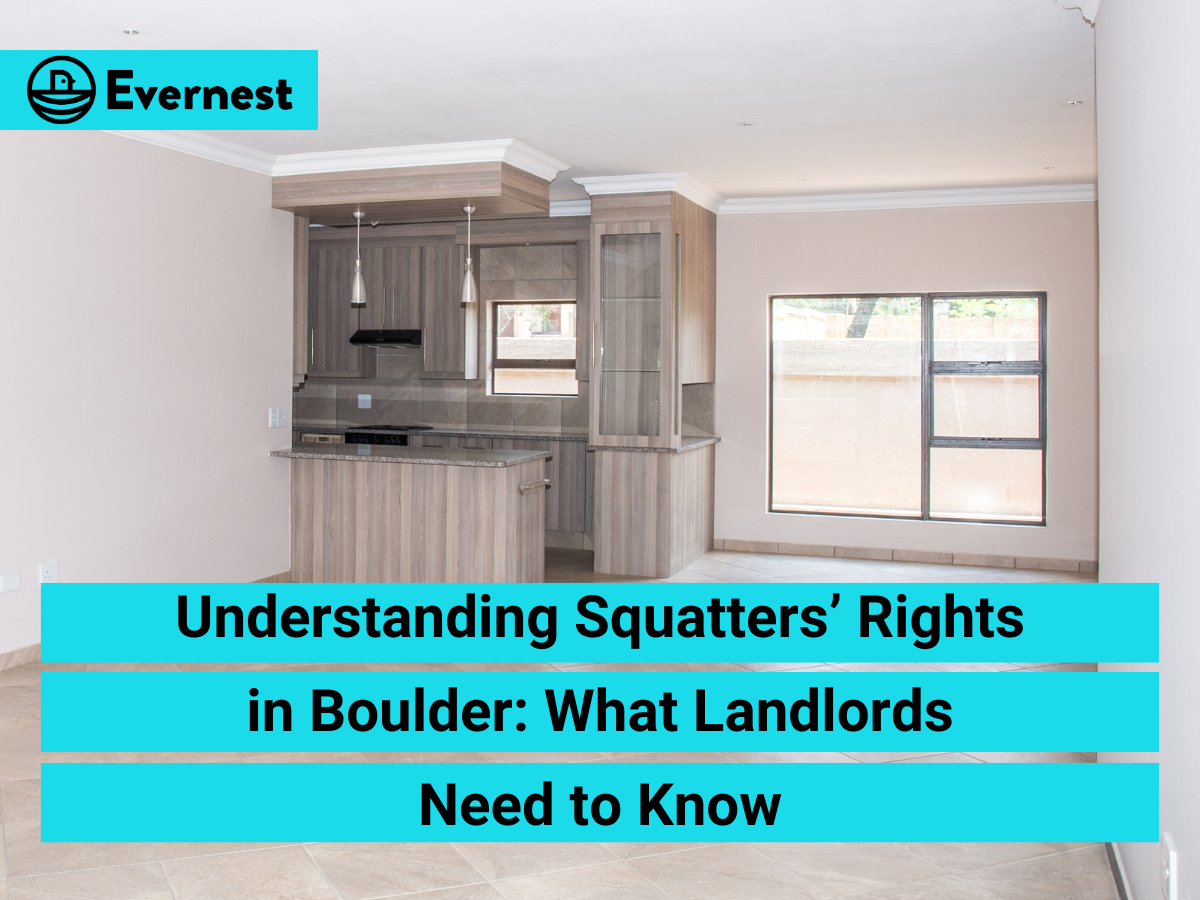In recent years, the issue of squatters' rights has gained significant attention. As a landlord in Boulder, it is crucial to have a clear understanding of these rights in order to protect your property and avoid legal disputes. This article will provide a comprehensive overview of squatters' rights to give you a better grasp of the complexities surrounding this issue and help you be better equipped to navigate any potential challenges that may arise.
Disclaimer: The information provided in this blog does not, and is not intended to, constitute legal advice; instead, all information, content, and materials available in this blog are for general informational purposes only.
The Legal Definition of Squatting
In simple terms, squatting refers to the act of unlawfully occupying a property without the permission of the owner. It is important to note that the definition may vary slightly depending on the state or jurisdiction, making it essential to familiarize yourself with the specific laws and regulations in Boulder.
The History of Squatting Laws
Squatting has a long and complex history that dates back centuries, with laws and regulations evolving over time to address the changing social and economic landscapes. The practice of squatting can be traced back to various civilizations where individuals would occupy unused or abandoned land or buildings for shelter or agricultural purposes and lay claim to it through use.
In the United States, squatting actually played a critical role in Westward expansion. Early settlers could claim land simply by occupying and cultivating it for an extended period of time. This principle of occupation and use of property playing a determining role in ownership lives on in the concept of adverse possession.
The Process of Adverse Possession
Adverse possession is a legal principle that allows individuals who have occupied a property for a specified period to claim legal ownership of the property. In order to claim adverse possession in Colorado, a squatter needs to meet the following criteria:
-Occupied a property openly and notoriously for at least 18 years (sometimes less if they’ve been paying property tax)
-Treat the property as if it were their own
-They must not share the property with anyone else
-Their occupation must be without the consent of the owner
-Their claim of ownership must be hostile to the property owner
If all of these criteria are met, a squatter has grounds to claim adverse possession.
Rights and Protections for Squatters
Squatters' rights are designed to prevent arbitrary eviction and provide stability for those without secure housing. These rights may include the right to apply for legal recognition of occupancy, the right to adequate notice before eviction, and, in some cases, the right to compensation for improvements made to the property. Understanding these rights can help landlords navigate the legal landscape when dealing with squatters and ensure compliance with applicable laws.
Squatters’ rights and the obligations of landlords vary based on the details of the situation. Property owners who need to evict a squatter should always consult an attorney in order to ensure a lawful and enforceable eviction takes place.
The Impact of Squatting on Property Owners
When squatters occupy a property, property owners can face a range of challenges and consequences. From property damage to loss of rental income, the impact can be substantial. Moreover, removing squatters can be a time-consuming and expensive process, often involving legal proceedings.
The best way to deal with the issue of squatters is prevention. A local property management company can offer critical assistance in keeping an eye out for signs of trespassing, especially if you own multiple properties or are frequently out of town. Other methods include installing fences, using surveillance equipment, and posting no trespassing signs.
Squatting and Homelessness
A concerning connection often discussed in relation to squatting is the issue of homelessness. Squatting can be seen as a symptom of a larger problem - the lack of affordable housing and support systems for vulnerable individuals. People who are found squatting due to unstable living situations should be directed to the Boulder Housing Authority or other agency that offers help to people experiencing homelessness.
Final Thoughts: Squatters’ Rights in Boulder
As a landlord, it is important to be well-informed about squatters' rights in Boulder in order to protect your property and act in accordance with the law. Stay vigilant, hire help, and seek legal advice when needed to ensure the best outcomes for all parties involved.
Need assistance looking after your properties in Boulder, CO? Reach out to our local team to find out how our services can help you protect your real estate investments!


